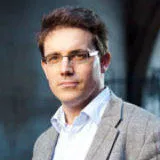Please note: this event has passed
‘Elite and public opinion about the use of military force’ will see a panel of academic experts discuss the German stance on the use of military force and the issues that surround it 30 years after reunification.
The event is taking place on 25 November, from 16.00 – 17.30 (GMT), and will feature Dr Heiko Biehl, head of the research branch on military sociology at the Bundeswehr Center of Military History and Social Sciences in Potsdam, and Dr Bastian Giegerich, director of defence and military analysis at the International Institute for Strategic Studies.
Professor Christoph Meyer, from the Department of European and International Studies at King’s College London, will chair the event, which is being hosted by the Centre for German Transnational Relations.
The so-called Munich consensus, articulated 2014 by the German president, foreign minister and defence ministers, asks for the country to shoulder greater responsibility in foreign affairs, including greater investment, engagement and contribution in defence and security matters.
Yet, progress in implementing this aspiration has been uneven and, in some areas, slow – too slow for many of Germany’s allies and partners who have been calling for greater investment and willing to shoulder greater risks in UN-authorised military operations.
The security environment for Germany and Europe remains challenging: Instability at the eastern and southern borders of Europe, state-sponsored cyber-attacks and other forms of interference, a revisionist Russia under Putin, and growing tensions between the US and China.
So, among a host of other issues, the panelists will be asking: where does Germany stand on the use of military force 30 years after reunification? How do elites and publics in east and west see the role, ambition and performance of the country’s armed forces? And what are the prospects of persuading an allegedly pacifist German public to invest more in security and support their armed forces in a way commonly seen in France or the UK?

